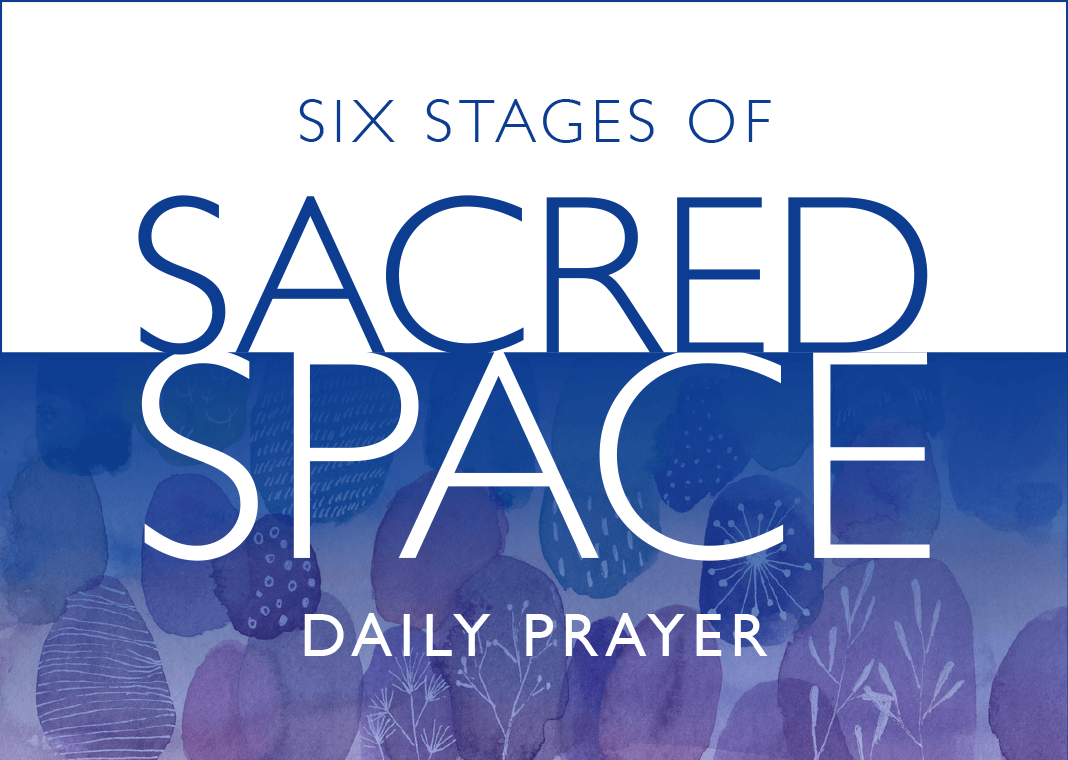Editor’s note: Sacred Space: The Prayer Book 2026 suggests six steps of prayer and contemplation for exploring the daily Scripture passages: The Presence of God, Freedom, Consciousness, The Word, Conversation, and Conclusion. We’ve invited our Ignatian bloggers to explore each step in a series concluding today.
Conclusion
“I thank God for these moments we have spent together and for any insights I have been given concerning the text.” (The Irish Jesuits, Sacred Space: The Prayer Book 2026)
This past summer our family managed to get away for a week at the beach. At this life stage when our children are now young adults, we have come to recognize and appreciate how precious the time is when we can all get together simply to enjoy some warm weather, sunshine, and surf.
These kinds of experiences will not last forever. At some point, our children will move away and begin building lives for themselves, perhaps with spouses and children of their own. Each vacation has a particular meaning, which we know to savor in the moment.
Looking back at the photos we took, I call to mind all the positive feelings we shared: the delight of splashing through warm water as we took long walks along the shoreline; the awe of beautiful sunsets, gazing westward across the intracoastal waterway; the carefree dinners we shared, sampling local seafood and gourmet pizza and enjoying views of the water.
These moments scrolling through photos never fail to evoke feelings of gratitude. Even in the midst of the busiest day, a glance at my phone’s lockscreen (which I’ve set to cycle through favorite family photos) calls to mind beautiful memories and pulls me momentarily out of the rush-to-the-next-class toward the longer story of our family’s life together.
Gratitude for prayer time, I will suggest, is rather like a pull toward the longer story of our pilgrimage with God.
Prayer is always concrete: a human soul responding to the invitation of God to grow in love through intimate, heart-to-heart conversation. And because it is concrete, it involves listening to God’s whispers, however much we babble. To invoke a medieval maxim, “Whatever is received is received according to the condition of the receiver.” (Quidquid recipitur ad modum recipientis recipitur.) We listen to what God speaks to us through Scripture and receive it according to the condition in which we find ourselves. If we are happy, we hear God’s Word in light of the happy conditions of our life. If we are troubled, we hear the Word in ways that offer to God the source of our troubles. The experience of prayer becomes, in a way, a mirror of our lives and often especially of our immediate life experiences: this conversation, this relationship, this issue at work, this concern for a loved one.
When we close our prayer with gratitude, we pull ourselves out of the immediate content of our conversation with God and recall the goodness of God’s originating invitation into intimate relationship. We recall the long story—both the long story of our individual pilgrimage with God and the even-longer story of God’s presence to us over the course of salvation history.
A friend texted me the other day, saying thanks for the conversation we’d had the evening before. He’s been going through a rough patch, and so I just wanted to sit with him a while to be present and listen. It was not the easiest conversation, because it was his opportunity to give voice to some really hard life circumstances. But the text was short and to the point, to the effect of saying, “Thanks for listening.” Closing our prayer time with a similar act of gratitude ensures that we never treat God as a petition vending machine (Pop in prayer; expect desired result.), or as a therapist (“Make me feel good, God!”), or as an oracle (“What’s the wise word for the day?”). It is a reminder to let God be God and to rest like a child in its mother’s arms (See Psalm 131:2.) while in prayer.
Ready to try the Sacred Space way of praying this Advent and beyond? Sacred Space: The Prayer Book 2026 is now available for only $12.


Beautiful stuff. Thanks Tim. “Whatever is received is received according to the condition of the receiver” – offers immense food for thought.
Tim, I look forward to your postings here. Today your last sentence is God’s whisper to me. I’m a new widow after 65 years of marriage and I am a lost fragment of my former self. The ONE we were is ripped apart and ragged. I beg, “Now What?” to God all these past months. The response…let God be God and to rest like a child in its mother’s arms (See Psalm 131:2.) while in prayer.
Blessings and please say a prayer for me. Thanks, Pat
Just did, Pat. Thanks to you and your late husband for your beautiful witness, and for your courage of heart today.
Thank you for these wise words. I plan to order the book today and make a habit of reading Sacred Scripture every day in a prayerful way. And to slow down in my prayer time.